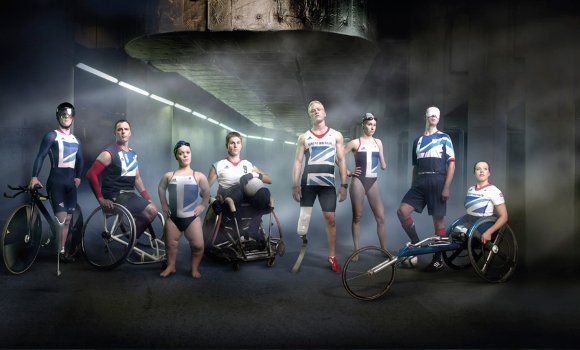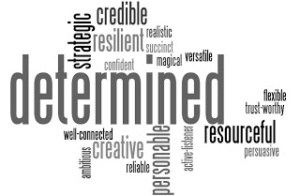Ten tips for better media interviews
Time to read: 2 minutes
Sam Howard advises on how tech companies can give better interviews.
Media training – that’s a terrible phrase isn’t it? Makes you think of all those awful politicians that enunciate every syllable emphatically, use all their fingers to underline each phrase and talk at you as if you were Jeremy Paxman. So let’s not go there. But there is still much you can do to make sure your conversations with journalists go well. Key, is to remember the journalist has very little time to create a very good story, and it’s your job to help them with that.
Some sensible tips for sensible interviews:

so it’s adaptable scalable innovate and flexible is it? Yeah you lost me at ‘it’s’
1) The Press as a whole are more concerned with business arguments than technology methodologies so the WHY needs to be answered way before the HOW and this is where many tech companies need to lift up their heads. The WHO is pretty interesting too, so whatever you do, don’t tone down your colourful characters.
2) The old truism,’ no-one is that interested in you’ is – erm – true. They are interested in issues though, so if you can help solve them, then that’s the angle to go in on.
3) Journalists are very busy people, so PLEASE get to the point. Work out how your issue-based messages can be delivered top down, so if you’ve struck a chord you can drill down with more insight or leave it as a one liner if it gets no traction.
4) It sounds obvious, but actively listen to the question and genuinely try to answer it.You need to answer questions as best you can and weave in your messaging where appropriate and leave it out where it isn’t. It’s critical to be seen as someone who understands the market and how it ticks. This is more important than getting all your messages across in each and every interview, euch! You may manage it the first time, but I doubt if anyone will want to talk to you a second time. However if you can establish yourself as a credible and trusted source, then the journalist is more likely to make time to talk to you when you do have relevant news.
5) The journalist is looking to create a compelling story from a mixture of background information, intelligent argument and quotes, so if you want to be quoted you need to have a view and be incisive; otherwise you find most of your effort gets swallowed up in unattributed body copy or as background information. Answers can be your own thoughts based on experience or theory, statistically or anecdotally-based or ideally a mixture of the lot.
6) Spokespeople should be reading a weekly digest of relevant hot stories, remember head up!
7) It should go without saying but follow the publication and the journalists you are hoping to meet, so you can assess what messaging will resonate best for that particular journalist.
8) Be courteous, Allow time for the journalist to finish their note taking and prepare their next question, do not dictate or just talk into the silence. Offer sustenance, and DO NOT look at your phones.
9) Remember this is a two way conversation, ask what the journalist is seeing and hearing in the market and future story ideas he is working on.
10) Every interview is different but you should be able to answer the following fundamental questions:
. In these cash strapped times, where are your customers spending their IT budget in your sector?
. What are the drivers behind this (i.e. sticks and carrots)?
. So where do you fit in?
. Other companies do what you do why are you better?
. What tech Holy Grail are you customers chasing right now?
. What’s preventing organisations from achieving it?
. What are the key trends in your technology sector right now?
. What’s your sector going to look like in five years’ time?
You can download these tips in a handy pdf if you like to keep on your desk and front of mind.
When men inspire words, and words inspire men
Time to read: 1 minute
Sam Howard pays homage to the Olympians and the Wordsmiths.
 |
| Thanks for the warm up. Now meet the Superhumans. If writing strap lines was an Olympic sport, that’s your gold medal winner right there |
So clearly, clearly it’s not ‘disabled’ it’s ‘differently-abled’. A term that’s been around for years, but now looks set to be embraced wholesale after the last two awe-filled, outrageously beautiful, amazingly uplifting weeks, which have left us feeling spiritually renewed and oh so proud.
So what to do now with the defunct phrase ‘disabled’? It works ok if you throw ‘temporarily’ in front of it. Like, you fall off your skis and break a load of bones – you are temporarily disabled. Cos you’re probably just going to sit it out and sulk about a bit while you can’t do anything, until such time as you can.
Another way it could be applied is to those of us that are just useless at sport. At 6ft I”, all shoulders, arms legs and feet – you’d think I’d be good at something, anything. But as my sporty father could testify, from the earliest age I’ve been quite rubbish at everything. Whip smart in my classes I’d get my comeuppance in PE, three times weekly. Instead of letting my sporty dad coach/cajole me into doing anything involving developing physical skills, I preferred to stay indoors writing angsty poems and drawing very thin, dead-looking people. I have remained steadfastly crap at sports, as now my sporty son can testify.
I take some comfort in the belief that I’m not the only one, and I’d very much like to think that maybe it was a sportily-challenged person like myself, sitting in Channel 4’s superb in-house agency 4Creative, that came up with the concept and the words, Thanks for the warm up. Now meet the Superhumans. For those are mighty fine words, that provided the spark that lit the touch paper for the Paralympic flame to burn so very brightly.
A Paralympian, a differently-abled person, a Games Maker, a sports-incompetent, a creative – there’s room enough for all of us to contribute, to make a difference and to make it better.
PR Agency or PR freelancer? Who best to tell your particular company story?
Time to read: 2 minutes
Sam Howard’s top tips for whether to go with a freelancer or an agency.
Recently I turned down a brief. Even my 11 year old questioned the sanity of that one, “Have you seen my Christmas list?” he queried.
Thing is, although the brief specified a freelancer it was for one that had specialist knowledge of everything basically – from travel to technology, from business to design, from gaming to food and a fair few other categories for good measure.
I’m not exactly a one trick pony but this had AGENCY stamped all over it. I recommended a favourite one and waved bye bye to it. I’m as good as my last job and I didn’t see how I could shine at that one. Besides what’s the point of spending 100 hours bringing in results that I quoted I could do in ten?
So if you’re thinking your comms might need a boost from some professional help and your budget is borderline here’s five things to consider when deciding if a freelancer or an agency is in the best position to help:
1) Budget: is the first factor that most people consider. Freelancers should be charging about half their agency rate. “Bargain!” I hear you yip, but it’s not that simple… Say you hire a senior freelancer who is at account director level or above, do bear in mind that day rate is fixed whatever the task, so yes amazing value for money when it comes to strategy and guidance, good value for media outreach and creating content, but when it comes to sourcing coverage, building media lists, feature research, reporting tools etc, not so much. In an agency, a junior or intern would be tasked with such mundane and time consuming activities, and could charge accordingly. So if you have an admin heavy/consultancy light brief, you might be better with an agency. News heavy accounts (e.g. a release a week) also qualify for this model as they fit better into an agency ‘machine’.
2) Expertise: So if you need lots of different sectors covered off as described above, 100s of media outlets, it’s agency all the way, if you need integrated services, again an agency is often a smart choice although most freelancers have a trusted network they partner up with. But if you want access to senior level support or a fair amount of hand holding again a freelancer might be a better fit as account directors can be pretty thinly spread in a busy agency across six accounts or more. So your monthly retainer may only allows for a day – to half a day of precious ‘AD’ time.
3) Capacity: Everyone knows it’s feast or famine for freelancers, but feast for a freelancer might not be a banquet for you, the client. Be sure to have a good understanding of your chosen freelancer’s workload and exactly how many concurrent clients they have. It maybe their eyes are bigger than their hands on abilities. This is less of a problem for agencies who have a bigger pool of staff and of course can hire should work levels remain consistently high.
4) Best practice: A good agency continues to hone and develop best practice, the opportunity to learn in an agency is one of the most compelling reason to work there. A freelancer from ‘birth’ will not have had the same exposure and will have had a different learning experience, They may have developed some shabby habits and I’m not just talking about dress code. If you are going to work with a freelancer, check their pedigree and make sure they have a good few years agency or established in- house experience that they can bring to the table with them. Ask some journalists what they think.
5) Payment terms: And finally if you know your company is somewhat backward at coming forward when it comes to settling its bills, again go to an agency where the two account departments can fight it out between themselves leaving your client relationship cosy. Working directly with a near hysterical, half-starved freelancer who hasn’t been paid for 100 days plus is not going to necessarily get you the kind of exposure you had in mind. Think Sideshow Bob on Twitter.
Whoever you chose to partner with for your comms, go in with a glad heart and some real commitment, so that 2012 is a great year for you both.

Ten tips for securing a PR internship
Time to read: 4 minutes
Sam Howard on one of her pet subjects: Internships are a contentious issue. Pay them? We are getting better at this but if the intern’s work isn’t billable, then where does the funding come from? Don’t pay them and risk being branded as a slave trader? Auction them? Surely not, but they do go for £3k a pop at a Tory Fundraiser. That can’t be right can it, jobs for the boys and all that?

furry hats – hardly ever a good idea
Over the years I’ve hired my fair share of interns. I like to do it, feels good to give someone a break, they seem to enjoy it, and it gives me so much genuine pleasure to watch my protégés go on to bigger and better things. Now, I work with the Taylor Bennett Foundation coaching its interns and also with USC Annenberg, where I head up the post grad London internship programme. This batch of placements began about a month ago and I’m happy to report that without exception the students are delighted with their learning experience and thriving under the guardianship and care of their sponsoring companies.So in this post I’m steering clear of the politics and just passing on my advice for getting on that first rung of the PR ladder, I hope it’s helpful.
1) CV building: It seems in the US there is a strong culture for CV building which I’m not sure we’ve quite caught up with here. Most of my US group’s CVs already boasted not one but several unpaid relevant internships as well as 100s of hours of community service. This demonstrated not only a basic understanding of what PR is in practice but a really strong work ethic. Doing something looks a lot better than doing nothing and doing something for somebody else for free is even better.
2) CV cleaning: This goes for any CV, not just when you are starting out, so do avoid the marketing schpeak there is no need to ‘big up’ achievements. Explain what your actual role was, rather than align your glory to the company as a whole, we don’t really expect juniors to have created global brands, but it’s a real bonus if we know you know how to put a tracker report together. Be bold, brave and honest in your CV. Us PRs do not believe the hype.
3) CV polishing: We want our interns to be able to read, write, spell, have great attention to detail and a good eye for presentation. Use your two page CV to show you are a master of all those trades. Make it work hard for you, put in hyperlinks to your work, your references, your social media profiles.
4) Sort out your social media presence: to me this is more important than the CV. The CV you crafted in isolation, the social media profile is a living breathing organism. Get yourself on LinkedIn build your connections and join your groups and get some recommendations up there as soon as you are able. As for Twitter, follow your favourite bloggers, journalists, brands and companies you would like to work for. Use Twitter to pass on latest trends and tips from the professionals retweet and reply. Same goes for Facebook, but make sure your privacy settings are where you want them.
5) Sector specific: Most of my US group not only knew that they wanted to make a career out of PR but also what sector they wanted and already had some industry grounding to underscore that. On the whole this seemed to work very well. If you are starting out, look to build your experience in pieces, want to work in fashion PR? Get a Saturday job in a high street store, organize a charity cat walk show in your college, represent a local independent store for free, don’t be despondent that you can’t get an internship at Gucci from day one, lead up to it. Therefore the flip side is if you have little or no relevant experience just yet, then you should keep your remit wide open, see each opportunity as one to learn.
6) Agency v in-house: Most of my group wanted to work agency side as they believed the faster pace would give them a more intense exposure. Again I would agree with this, although I would say the mid size and smaller agencies are often much more receptive to giving an intern a good home. Going in house seems to take longer to clear, and also you need to be sure that there is enough actual PR work for you to do, so be clear on the job description if it’s a start up or a few man crew. Be objective, a great brand name might have global recognition, but a smaller agency might give you more responsibility. Do your research, find your specialists, PRWeek can be a good place to start.
7) Timescales: Even with high calibre students and a decent address book it took some time to secure good opportunities. About half the opportunities were secured through some, albeit tenuous, link with the company. I found one internship through a friend’s wife’s bridesmaid’s then boyfriend, who didn’t even work there anymore! But actually it isn’t a case of jobs for the boys here, use social media as your slave to form connections. LinkedIn became my new best friend. While Twitter and Facebook both elicited responses in minutes when email and phone did not. Be prepared to approach at least 10 maybe 20 agencies depending on sector (and certainly not the ten biggest) before you can get to interview stage. I would also look to secure your internship a good six to eight weeks before you actually want to start. An ideal internship should be between one to three months. Anything less and I’m not sure you can learn that much, anything more should at least be paid.
8) Who to send the CV to? Whoever it is you ’know’ is the best answer, they at least will tell you who it should really go to or better still forward it for you, make sure your accompanying mail is intelligent relevant and polite. Don’t be afraid to phone up to find out who to send it to and if it’s a smaller agency do be prepared to really pitch yourself on the phone, you never know who is on the other end.
9) Payment: I’m not getting into this one but it seems the norm is to reimburse travel and lunch expenses. Some agencies do pay a minimum wage but they seem to be in a minority.
10) Interviews: Do take ‘em seriously, if you don’t want this job there are plenty of others that do. Now, I know I sound like your mum here but bear with me, dress the part, clean your shoes, wash your hair and arrive on time. It’s absolutely fine to be nervous but try and be positive too. Bring proof of your skills, written work, clips, references. Demonstrate company, sector and issue knowledge, show you are passionate about our world, prepared to do the admin but hungry for more responsibility. Answer questions honestly and ask strong questions. Enthuse and smile, the person interviewing you may well be the one who will be mentoring you so let them know up front it’s going to be a rewarding experience.
Imagine a world without Tech PRs

anyone interested in my very clever idea that you wouldn’t understand and i don’t know why any one would buy it?
Time to read: 2 minutes
Sam Howard wonders do we really need tech PRs?
A recent survey by Careers Cast suggested that the life of a PR was second only to being a pilot in terms of stress.
“It’s not rocket science!” blasted journos all over twitter.
Very true, but PR can be a trite fraught on occasion. To illustrate my point lets imagine a world where there were no PRs, because everyone in The World of Tech was just so good at connecting and communicating…
Once upon a time, there was an incredibly enthusiastic and irrepressible young journalist, to him the glass was always half full, not that he was much of a drinker, mind! One day he had to catch a bus into the village to buy more type writer ribbon. He planned to use this time on the bus to fact and spell check his work before submitting it to his editor. “You are such a perfectionist!” The wise, old gentleman would kindly chide him, whenever he handed in his copy just a little late.
In the next village there lived the most charming and charismatic inventor you could ever hope to meet. She also had to catch the bus to visit the local ironmonger, who she had commissioned to make some more phalangees, a critical component in her latest invention.
Well, it must have been fate, for on that day, these two jovial people just happened to sit next to each other. Both of them being out-going types, in possession of exceptional social skills, they soon fell into a happy rapport. In no time at all the earnest inventor was telling the curious journalist all about phalangees and their properties in an extraordinarily level of detail. The journalist had all the time in the world to listen to the long list of features that each permutation of phalangees delivered; indeed he was gripped. Having both missed their stops, they were now walking companionably back into the village together and the journalist used his psychic skills to ascertain the unique business benefits that phalangee-based engineering could deliver to his readers.
And so with a great shout of excitement the journalist stopped in the lane and cried, “I believe this to be the singularly most important technological discovery of our time! And even though my beat is actually musical theatre, I’m sure my editor will give me the cover story to tell the world all about it.”
Well, the inventor was somewhat overcome and demurred, “Golly that’s terribly decent of you, but do you think you might wait a while before you write anything as I now realise I’m not quite geared up for discovery just yet?”
The journalist nodded solemnly, and true to his word the story was published quite some time later, once the inventor had taken her suit to the cleaners, decided on her company logo and got the phalangee-based product range to stop blowing up.
Within hours of that one story breaking, everybody was talking about it, and, Ashton Kutcher, Lady Gaga, Kanye West and Stephen Fry were all begging to be among the first to beta test it and the company share price shot up and overnight the inventor became a multi-millionaire.
As for the journalist, he was ever after regarded as a technology guru whose wise words would forever be commissioned throughout the land. And they all lived largely ever after…
Yeah, like that happens all the time!
If it did there might be no need for PRs to help companies articulate their offering in a coherent way that delivered compelling copy to the media. But it very rarely does and and making it so is sometimes a thankless task. But the second most stressful career?
OK if it wasn’t for us PRs the wheels of commerce might have to travel a road more pot holed, but no, it’s not rocket science, nor is it like flying a plane, or being a nurse, a fire fighter, a policeman, a prison warder, a teacher, a carer, or even a journalist…All jobs have a level of stress associated with them and in PR I think we might secretly like it, it’s nice to be needed.
Why the sign off process can kill a good press release
Time to read: 1 minute
Is a badly written press release down to the PR officer as journalists love to think, or all the layers of people it must go through to get sign off?

I’m going to write you the perfect press release, and then all you have to do is: LEAVE IT ALONE!
It’s too depressing to cite examples of dreadful press releases here, but editors still get them daily. This could be because the PRs can’t write, in which case don’t let them on the account until they can. Look at your training programme and your time investment in this, even the most clunky of junior writers can make great progress with some guidance and ground rules. But if you are paying someone to do your PR and it’s obvious they can write, then really I think you should just let them. But sadly that’s often not what happens.There is another reason why editors receive such toe-curling, bland brochure-ware – and it’s more common than you might think – and that’s thanks to all the people that contributed to its creation.
For the uninitiated, here’s a typical sign off cycle in a midsize tech company:
- The PR drafts the press release for a product launch, let’s assume it’s pretty good: it tells a story, makes a point, does it succinctly.
- Then the head of comms reviews it, make more of the key messages, it’s a bit more evangelical, but what can you do?
- Then the head of product reviews it, and adds a load of technical detail that probably no one is ever going to read cos it’s very boring.
- Then the head of sales gives it a quick once over, and just adds ‘world’s leading’ to the company descriptor, cos he’s read press releases before and they always have that.
- Then the head of the division takes forever to review it because he is so very important, and adds some outlandish testosterone-fueled statement that says more about him than it does about the product launch.
- Then the company lawyer reviews it, and she removes anything remotely interesting at all and what’s left is littered with trademark symbols.
- Then, and only then, can the PR send it out – obviously three weeks late and to howls of derision from the very same journalists that she really rather admires and would very much like to impress…
Go on step on the grass… when it’s OK to go off message
Time to read: 1 minute
Another of Sam Howard’s pet rants subjects:
In PR you hear a lot about being ‘On Message’. This is very important isn’t it? Being On Message, having your people rehearsed and slick, so they can always be On Message? Oh pulllease.
If a journalist knows what you’re going to say before you open your mouth why would he/she bother to rock up for the interview? I mean seriously, what’s in it for them? If they just want the corporate spiel, they’ll check out your website. If they want to talk to you it’s cos there’s a vague hope that in and around the adaptable-scalable-innovative-flexible monologue you might actually have a view, say something interesting, topical, original, human even, and actually provide some decent copy.
The best view to have, I think, is one that runs contra to the stream. Back in the mid 90s when I laboured over my very first press release, I was super diligent about being fact-based and succinct, (I had been trained well, forever in debt Mr Springett) but I didn’t have the confidence to write the quote for my boss. So instead, I wrote, “Say something contentious here.” And he did, and it worked a treat. Mr Caplin, gotta love him and even if you don’t, he always makes great copy.
On occasion, it’s OK to fess up to that slightly dodgy implementation when your record is normally great, and you can demonstrate you have learned from it. Or to admit the recession might be taking its toll on you too, but you are gonna haul your weary backside out of it, or die trying.
You see the joy of sometimes wondering off message means that when you do get back on it, your audience might actually believe you. And isn’t that quite important? Besides, whoever wants to hear somebody else’s diet is going really really well?
When I work with my PR clients we work hard on looking at where we can first and foremost add some value/originality to the debate. You know not everything that comes out of your mouth is necessarily going to be that great and that’s where your trusted PR comes in – they can tell you what to run with and what not to bother banging on about, because it is irrelevant or just actually not that interesting. Sometimes it is all about the team singing from the same hymn sheet, but other times you just need to know a good tune.
Determined to be in PR? That’s handy
Time to read: 1 minute
Sam Howard asked a question of the UK Technology Journalists and PR Group on LinkedIn – what makes a great PR? One word answers only.

At the time I wrote this I’d had 41 answers from presumably a random selection of PRs. Having turned freelance only weeks ago I have some time on my hands so I tidied it up a bit and here’s a word cloud of how it looked…
If you add to ‘determined’ ‘resilient’ and ‘resourceful’ you’re looking at about a third of the vote. Seems we are just as well-suited to being long distance runners, a mountain climbers, swimming the channel or something else equally draining. ‘Strategic’ always a good one, gets a double name check, as does ‘personable’ and ‘creativity’, my own guilty pleasure.
Not sure about ‘magical’ myself, but I guess if you are the rest of it is easy.
But the one for me is ‘credible’. To be credible in front of your clients, your journalists, your team and your management generates trust, mutual respect and a sustainable reputation. After 16 years in this industry, my integrity, if not my ego is just about intact. Doesn’t mean I was ever the most popular girl in the room, and I was certainly an acquired taste among our clients, some of which we thought it best if I never met. But, as I used to whimper when I’d lock myself in the bathroom, “I’m not paid to be popular”.
Actually once you let go of the vague hope of ever being popular, it is quite liberating. Give it a go if you haven’t already.

